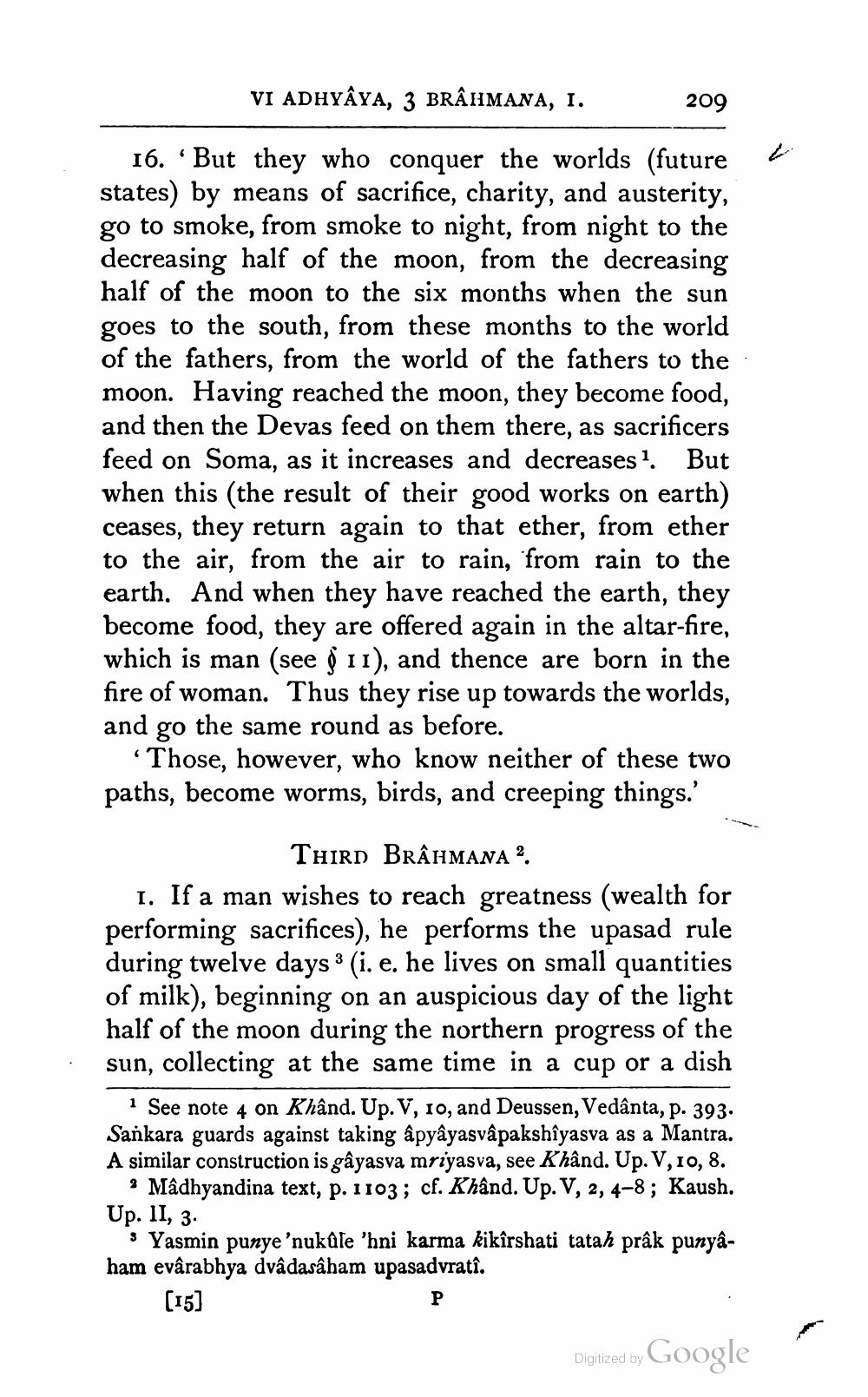________________
VI ADHYAYA, 3 BRÂHMANA, I.
209
16. But they who conquer the worlds (future states) by means of sacrifice, charity, and austerity, go to smoke, from smoke to night, from night to the decreasing half of the moon, from the decreasing half of the moon to the six months when the sun goes to the south, from these months to the world of the fathers, from the world of the fathers to the moon. Having reached the moon, they become food, and then the Devas feed on them there, as sacrificers feed on Soma, as it increases and decreases. But when this (the result of their good works on earth) ceases, they return again to that ether, from ether to the air, from the air to rain, from rain to the earth. And when they have reached the earth, they become food, they are offered again in the altar-fire, which is man (see 11), and thence are born in the fire of woman. Thus they rise up towards the worlds, and go the same round as before.
Those, however, who know neither of these two paths, become worms, birds, and creeping things.'
Third BRÂHMANA 2. 1. If a man wishes to reach greatness (wealth for performing sacrifices), he performs the upasad rule during twelve days 3 (i. e. he lives on small quantities of milk), beginning on an auspicious day of the light half of the moon during the northern progress of the sun, collecting at the same time in a cup or a dish
1 See note 4 on Khând. Up. V, 10, and Deussen, Vedânta, p. 393. Sankara guards against taking âpyâyasvâpakshîyasva as a Mantra. A similar construction is gâyasva mriyasva, see Khând. Up. V, 10, 8.
Mâdhyandina text, p. 1103; cf. Khând. Up. V, 2, 4-8; Kaush. Up. II, 3:
- Yasmin punye’nukale 'hni karma kikîrshati tatah prâk punyâham evârabhya dvadasâham upasadvratî. [15]
Digitized by Google Digitized by




